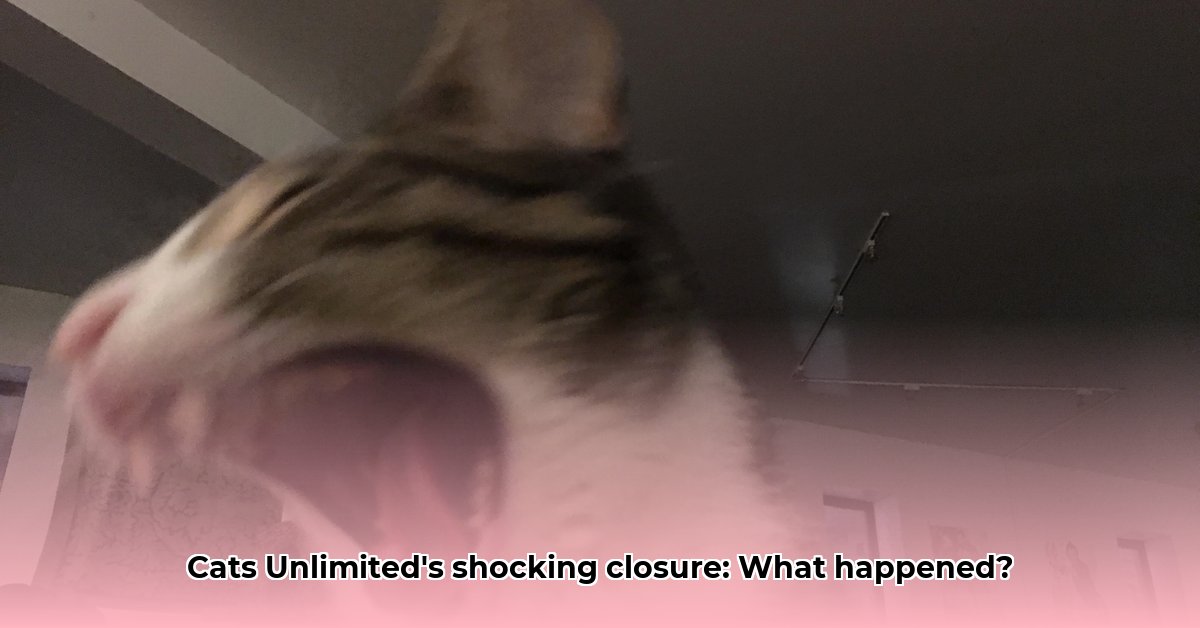
The recent closure of Cats Unlimited, a Rockbridge County non-profit providing low-cost spay and neuter services for cats, marks the end of a 20-year legacy. This closure, announced May 1, 2024, via a brief statement on their website, leaves a significant gap in community animal welfare services. Over its lifespan, Cats Unlimited sterilized an impressive 8,747 cats, a testament to its dedication. However, its sudden demise highlights the precarious financial situations often faced by non-profit animal welfare organizations. By analyzing Cats Unlimited's closure in contrast to the continued success of Cats Limited Veterinary Hospital, we can identify key factors contributing to organizational sustainability and resilience.
A Tale of Two Clinics
Cats Unlimited’s closure starkly contrasts with the ongoing success of Cats Limited Veterinary Hospital, another Rockbridge County institution. Both served the community for over two decades, yet their trajectories diverged significantly. While Cats Limited, specializing in feline care, enjoys strong client loyalty and a robust reputation, Cats Unlimited’s closure raises critical questions about the challenges of providing affordable, community-focused animal care. Is the difference solely attributable to business model, or are deeper systemic issues at play?
Unraveling the Mystery of Cats Unlimited's Closure
Several factors likely contributed to Cats Unlimited's closure. A primary concern was likely their funding model. Reliance on grants, donations, and volunteer labor—common for non-profits—creates inherent vulnerability. A reduction or loss of funding from even one source can severely jeopardize operations. This dependence makes such organizations susceptible to unpredictable economic shifts.
Another potential factor is leadership transitions. Effective succession planning is crucial for any organization's longevity. A lack of a well-defined plan to replace key personnel can lead to operational disruptions and a loss of strategic direction, impacting efficiency and overall effectiveness.
Finally, a lack of continuous program evaluation and adaptation likely played a role. Regular review of program effectiveness, identifying areas for improvement, and adapting to evolving needs and economic realities are vital for long-term sustainability. The absence of transparency surrounding the closure suggests that Cats Unlimited might not have adequately addressed these critical aspects.
Lessons Learned: Building a Sustainable Future
Cats Unlimited's closure offers invaluable lessons for community-based non-profits:
Diversified Funding: Organizations should actively cultivate multiple funding streams, including individual donations, diverse grants, corporate sponsorships, and fundraising events. This diversified approach minimizes risk and enhances financial stability.
Robust Succession Planning: Detailed leadership transition plans are essential. This involves identifying and training potential successors, documenting established processes, and clearly defining lines of authority.
Transparent Communication: Open and honest communication with stakeholders builds trust and fosters support. Regular updates on progress, challenges, and future plans strengthens community engagement.
Continuous Program Evaluation: Regular, data-driven assessments of program impact are critical for identifying areas needing improvement and maximizing efficiency.
Recommendations for a Sustainable Future in Animal Welfare
To foster more resilient organizations, we recommend:
Strengthening Government Partnerships: Actively cultivate relationships with local governments to explore joint funding opportunities and collaborative programs.
Innovative Funding Mechanisms: Explore crowdfunding campaigns, endowment funds, and strategic corporate partnerships – all can diversify and enhance funding security.
Measurable Goals and Evaluation Systems: Establish clearly defined, measurable goals and robust evaluation systems to ensure accountability and demonstrate impact to potential funders.
Community Outreach and Education: Invest in robust community outreach and education programs to foster a sense of shared responsibility for animal welfare.
Ensuring a Lasting Legacy for Animal Welfare
The contrasting fates of Cats Unlimited and Cats Limited emphasize the importance of aligning community service with sustainable business practices. Cats Unlimited’s closure necessitates a crucial discussion on building more adaptable and resilient animal welfare initiatives. It’s not just about providing immediate services; it’s about creating enduring solutions that can withstand economic volatility and evolving needs. Let Cats Unlimited’s experience serve as a catalyst for broader improvements in the sustainability and effectiveness of community-based animal welfare programs, ensuring the continuation of vital services for those in need.
⭐⭐⭐⭐☆ (4.8)
Download via Link 1
Download via Link 2
Last updated: Sunday, June 08, 2025